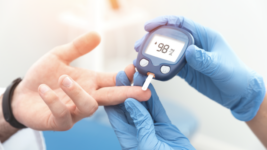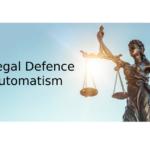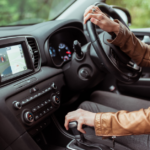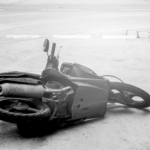Can a Diabetic Episode be a Legal Defence? Automatism in NSW

It has been reported that the driver of a vehicle which ploughed through a roadside beer garden in regional Victoria last week, killing five people, may have been experiencing a diabetic episode.
The effects of diabetes can give rise to a formal legal defence in some circumstances, including in situations of dangerous driving resulting in death.
The following outlines how these legal principles would apply if the case was to occur in NSW.
The Offence Of Dangerous Driving Occasioning Death in NSW
As in Victoria, there is an offence in NSW under section 52A(1) of the Crimes Act 1900 (NSW) for ‘dangerous driving occasioning death’. This offence applies where a driver is involved in an impact which causes the death of another person, and he or she was driving:
- under the influence of drugs or alcohol,
- at a dangerous speed, or
- in a dangerous manner.
This offence carries a maximum penalty of 10 years imprisonment.
A further offence is outlined under section 52A(2) of the Act if ‘circumstances of aggravation’ apply including:
- the driver had a high range p.c.a., ie 0.15 or over,
- the speed exceeded the limit by more than 45km/h,
- the driver was attempted to escape a police pursuit, or
- the driver was ‘very substantially impaired’ by a drug or drugs other than alcohol.
This offence carries a maximum penalty of 14 years imprisonment.
Possible defences to this charge include self-defence, duress, necessity and automatism, the latter of which is most relevant to claims of a diabetic episode.
The defence of automatism
Criminal responsibility does not attach to the offence of dangerous driving occasioning death unless the criminal acts are ‘voluntary’. A state of ‘automatism’ occurs when a person commits an offence without voluntary control or direction over what is being done.
To be voluntary, an act must be performed with the consciousness of the nature of the act and in exercise of a choice to do an act of that nature: Ryan v The Queen (1967) 121 CLR 205. An act is presumed to be voluntary unless a case for automatism is raised by the defence to the standard of ‘reasonable possibility’ (R v Falconer (1990) 171 CLR 30). Once raised, the prosecution must disprove automatism to the standard of beyond reasonable doubt.
In relation to complications resulting from diabetes, the principles of automatism will apply differently depending if a person’s state of automatism was brought about by insulin-induced low blood sugar (hypoglycaemia) or high blood sugar as a result of the disease (hyperglycaemia).
Hypoglycaemia and ‘sane automatism’
‘Sane’ automatism refers to states of automatism that are brought about by ‘external’ factors as opposed to ‘internal’ factors of a person. Some examples include: concussion, drug-induced psychosis and transient disassociation due to emotional trauma.
If successfully raised, the quasi-defence of sane automatism would result in an element of the offence failing to be proven and result in an acquittal.
A state of hypoglycaemia or low blood sugar was recognised as giving rise to a state of sane automatism in the foundational English case of R v Quick [1973] QB 910.
In Quick, the accused (who was a diabetic) had taken insulin in the morning but had not eaten much during the day resulting in an episode of hypoglycaemia. In this state, the appellate had ‘blacked out’ and attacked a victim who suffered black eyes, bruising and a fractured nose. Although convicted of assault occasioning actual bodily harm at trial, the accused was successful on appeal as the court recognised that hypoglycaemia, being the result of an external factor (insulin medication), could give rise to a state of sane automatism.
Hyperglaecemia and ‘insane automatism’
Unlike cases of ‘sane automatism’, situations of ‘insane automatism’ are determined to be caused by the internal states of an individual and not an external cause, giving rise to the defence of insanity.
Under section 28(1) of the the Mental Health and Cognitive Impairment Forensic Provisions Act 2020 a person is not criminally responsible for an offence if:
…at the time of carrying out the act constituting the offence, the person had a mental health impairment or a cognitive impairment, or both, that had the effect that the person –
(a) did not know the nature and quality of the act, or
(b) did not know that the act was wrong (that is, the person could not reason with a moderate degree of sense and composure about whether the act, as perceived by reasonable people, was wrong).
This defence must be proven by the accused to the standard of ‘on the balance of probabilities’ in order to result in an acquittal.
Unlike sane automatism, establishing insane automatism (and therefore a defence of mental health impairment or cognitive impairment) would result in a person being dealt with under the provisions of the Mental Health Act 2007 (NSW), which may involve involuntary detention in a mental health facility.
In the foundational case of R v Hennessy [1989] 1 WLR 297, it was determined that states of hyperglycaemia as a result of diabetes could give rise to ‘insane’ but not ‘sane’ automatism.
In Hennessy, the accused was apprehended whilst driving a stolen car, later collapsing at the police station. It was later found the accused, who had diabetes, had not taken his insulin for days in an act of despair following the breakdown of his marriage. At the time of stealing the car he was effected by a state of high blood sugar (hyperglycaemia) giving rise to drowsiness and poor decision-making.
The accused was convicted at trial and, on appeal, tried to argue that sane automatism should have been open to the jury (citing the decision of Quick). However, the appellate court determined that a hyperglycaemic episode, being the result of the underlying condition of diabetes, could not give rise to a claim of sane automatism. As such, only the insanity defence was available to the accused at trial.
Going to court for a criminal offence?
If you are facing court over a criminal offence, call Sydney Criminal Lawyers anytime on (02) 9261 8881 to arrange a free first consultation with a specialist criminal defence lawyer who is vastly experienced in representing clients in criminal matters and has a proven track record of producing exceptional outcomes.






